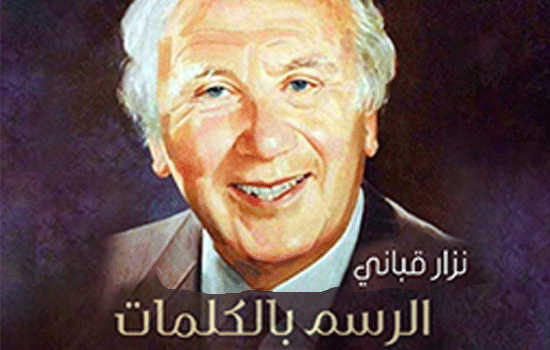The Sultan Bin Ali Al Owais Cultural Foundation has issued a new publication within the “Symposiums” book series. The new book, “Drawing with Words” is named after a symposium on the late poet Nizar Qabbani, which saw the participation of Ahmed Barqawi (The Ego in Nizar Qabbani’s Poetry), Ali Obeid (Fountains Don’t Tire and the Water of Damascus Never Runs Out), Mohammed Shahine (Nizar Qabbani: For Whom the Canary Sings), Samar Rohy Al Faisal (Qabbani’s Prose: The Other Face of His Creativity), Afaf Al Bataina (The Poetic Quest for Freedom), Nizar Abu Nassir (Features of the Nizari Aura), Ulwi Al Hashemi (Nizar Qabbani: The Paradox “A Critical Confession”) Sharif Al Gayyar (Aesthetic Rebellion and Rejection of Inherited Legacies) and Barwin Habib (Techniques of Expression in the Poetry of Nizar Qabbani).
The Sultan Bin Ali Al Owais Cultural Foundation has always been keen on documenting all the symposiums it organizes by issuing various publications within the “Symposiums” book series”. The Foundations efforts to issue these books are aimed at making them accessible to the largest number of culture enthusiasts.
It is worth mentioning that late Syrian poet Nizar Qabbani (1923-1998) had won the Foundation’s Cultural and Scientific Achievement Award (3rd session), for being one of the most popular and influential Arab poets. Qabbani had succeeded in drawing the attention of the general public to poetry by creatively inventing his very own poetic language that is very akin to mundane language and everyday dialogue, hence becoming accessible to various social groups and breaking the wall that had hitherto existed between the public and poetry. He became a household name in the Arab world and his poetry readings in different Arab cities were a cultural phenomenon that underlined the important status of poetry in the lives of Arabs and its seminal role in shaping the identity of Arab individuals. This also stressed the responsibility poets have towards their audience.




